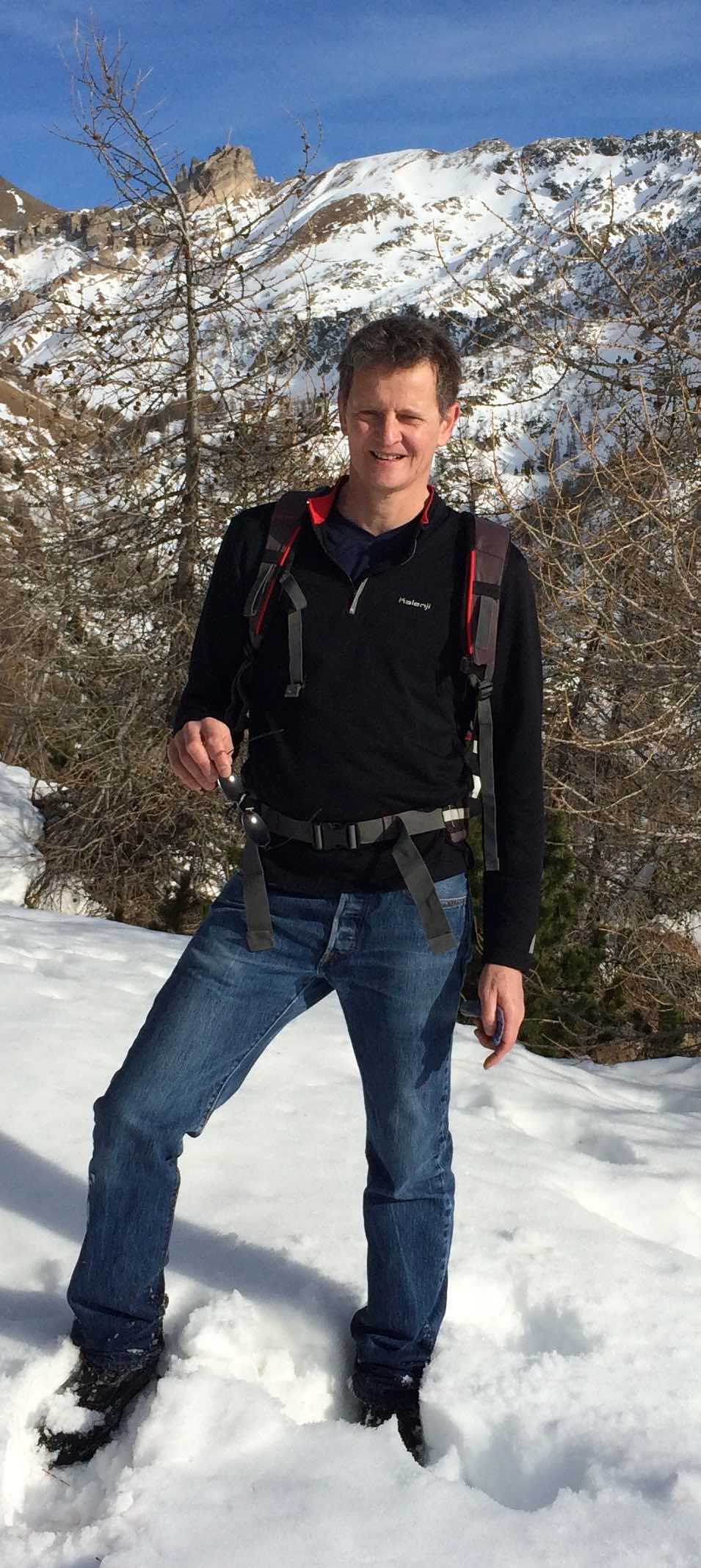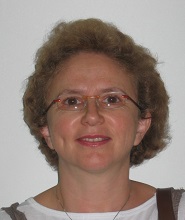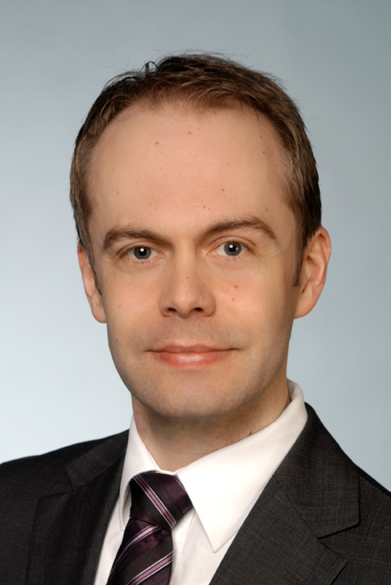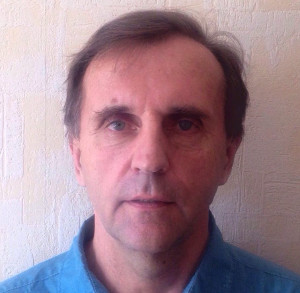The aim of organizing these two workshops in one is to bring together scientists interested in control of distributed parameter systems, namely those having different points of view and possessing different types of expertise. The conference will address new and state-of-the-art developments in modeling and control of distributed parameter systems and their application. Since the control design for these systems resides at the intersection of mathematics, systems and control theory, control systems technology, and computer and information science is essential to provide a joint forum to foster and evolve this important and emerging field of research. CPDE-CDPS’19 aims at providing this forum under the IFAC flagship, with the technical co-sponsorship of the IEEE Control Systems Society and in collaboration with the Mexican Mathematical Society (SMM).
To enlarge the community of researches working in modeling and control of distributed parameter systems, before the workshop an introductory spring school will be held from May 16 to May 18.
The workshops and spring school will be held at Hotel Misión de los Ángeles, Oaxaca, México.
Misión de los Ángeles
https://misiondelosangeles.com/
The prices for the group are: $1231 mexican pesos in single room/breakfast included
$1391 mexican pesos in double room/breakfast included
For reservations send a mail to alma@im.unam.mx with copy to ldeteresa@im.unam.mx with in the subject Grupo Matemáticas, the dates and kind of room you want.
The Organizing Committee has the pleasure to invite you to participate in the 3rd IFAC/IEEE CSS Workshop on Control of Systems Governed by Partial Differential Equations (CPDE 2019) and XI Workshop on Control of Distributed Parameter Systems (CDPS 2019) to be held in Oaxaca, Mexico, May 20-24, 2019.
CPDE is the triennial meeting of IFAC for bringing together scientists interested in modelling and control of distributed parameter systems and their applications. CDPS started in 1998 with the aim to study and develop the mathematical machinery to study the control problems of distributed parameter systems. Since the control design for these systems resides at the intersection of mathematics, systems and control theory, control systems technology, and computer and information science CPDE-CDPS’19 aims at providing a forum to foster and develop this important and emerging field of research under the IFAC flagship, and with the technical co-sponsorship of the IEEE Control Systems Society.
The venue, Oaxaca city, is one of the safest and most economically stable regions in Mexico, considered Humanity’s Cultural Patrimony by UNESCO. The face of Oaxaca is charming 17th-century architecture: courtyards and shaded zocalos. Oaxaca offers beautiful architecture, distinctive restaurants, a rich array of cultural offerings, friendly population, harmonious relationship with nature and a temperate climate year-round. It has recently ranked second in The World’s Top 15 Cities by Travel and Leisure (https://www.travelandleisure.com/worlds-best/cities ).
The topics of the workshop will cover new and state-of-the-art developments in modeling and control of distributed parameter systems and its application. This covers approaches and techniques for the modeling, analysis, control, and observer/estimator design for systems governed by partial differential equations and includes (but is not limited to) methods such as differential geometric and algebraic approaches, semigroup and operator theory, Lyapunov-based and backstepping techniques, passivity and dissipativity, optimal control, controllability and observability analysis, stability theory, model reduction for control, computational methods, real-time control, actuator and sensor placement, experimental design.
In addition, applications are considered covering, e.g., smart and adaptive structures in mechatronics, marine systems and aerospace engineering, flow control, energy generation, distribution and storage, process intensification and process systems engineering, adaptive optics, quantum systems, distributed cooperative systems, communication, embedded actuators and sensors, traffic control and network congestion, and flexible micro-structures.
Five confirmed plenary talks will be delivered by Thomas Meurer, Emilia Fridman, Enrique Fernández Cara, Yuri Orlov and Nicolas Burq, well recognized experts in their fields. Also several invited keynotes will be presented. Invited sessions and posters are encouraged as well. Moreover, to enlarge the community of researches working in modeling and control of distributed parameter systems, prior to the workshop an introductory spring school will be held from May 16 to May 18, 2019, at the same location.
For more information, visit: https://www.smm.org.mx/eventos/cdps-cpde/
IMPORTANT DEADLINES:
December 20, 2018: Deadline for the submission of:
• Full draft contributed / invited papers
• Invited session proposals
• Tutorial papers,
• Prospective or Discussion papers (about 3 pages)
February 12, 2019: Notification of acceptance
March 15, 2019: Deadline for the final paper submissions
All manuscripts must be submitted electronically through the PaperPlaza Conference Manuscript Management System.
Proceedings from IFAC meetings are published by IFAC, in cooperation with the IFAC Publisher,on the IFAC PapersOnLine site and will be citable via an ISSN and a DOI (Digital Object Identifier), a unique industry-standard identifier assigned to every paper.
“All publication material submitted for presentation at an IFAC-sponsored meeting (Congress, Symposium, Conference, Workshop) must be original and hence cannot be already published, nor can it be under review elsewhere. The authors take responsibility for the material that has been submitted. IFAC-sponsored conferences will abide by the highest standard of ethical behavior in the review process as explained on the Elsevier webpage (https://www.elsevier.com/authors/journal-authors/policies-and-ethics), and the authors will abide by the IFAC publication ethics guidelines (https://www.ifac-control.org/events/organizers-guide/PublicationEthicsGuidelines.pdf/view).
Accepted papers that have been presented at an IFAC meeting will be published in the proceedings of the event using the open-access IFAC-PapersOnLine series hosted on ScienceDirect (https://sciencedirect.com/). To this end, the author(s) must confer the copyright to IFAC when they submit the final version of the paper through the paper submission process. The author(s) retain the right to use a copy of the paper for personal use, internal institutional use at the author(s)’ institution, or scholarly posting at an open web site operated by the author(s) or their institution, limited to noncommercial use. Any other use of the paper requires approval by IFAC.”
Kirsten Morris & Lars Gruene, IPC Chairs
Luz de Teresa & Jaime A. Moreno, NOC Chairs
Contact Email: CDPS-CPDE@smm.org.mx
Download the Call for paper in PDF
CPDE-CDPS
Jaime Moreno (Instituto de Ingeniería, UNAM) MX, Co-Chair
Luz de Teresa (Instituto de Matemáticas, UNAM) MX, Co-Chair
CPDE
Yury Orlov (CICESE) MX, Editor
Co-Chairs:
Lars Grüne (DE)
Kirsten Morris (CA)
Members:
Fatiha Alabau-Boussouira (FR)
Lorena Bociu (US)
Delphine Bresch-Pietri (FR)
Eduardo Casas (ES)
Eduardo Cerpa (CL)
Weiwei Hu (US)
Valeria Neves Domingos Cavalcanti (BR)
Michael Demetriou (US)
Denis Dochain (BE)
Max Gunzburger (US)
Birgit Jacob (DE)
Miroslav Krstic (US)
Andreas Kugi (AT)
Irena Lasiecka (US)
Yann Le Gorrec (FR)
Alessandro Macchelli (IT)
Thomas Meurer (DE)
Nicolas Petit (FR)
Benedetto Piccoli (US)
Christophe Prieur (FR)
Pierre Rouchon (FR)
Oliver Sawodny (DE)
Ralph Smith (US)
Jacquelien Scherpen (NL)
Markus Schöberl (AT)
Emmanuel Trelat (FR)
Stefan Volkwein (DE)
Enrique Zuazua (ES)
Hans Zwart (NL)
CDPS Steering Committee
Michael Demetriou (US)
Denis Dochain (FR)
Bao-Zhu Guo (CH)
Birgit Jacob (DE)
Miroslav Krstic (US)
Hartmut Logemann (UK)
Denis Matignon (FR)
Kirsten Morris (CA)
Jonathan Partington (UK)
Lassi Paunonen (FI)
Olof Staffans (FI)
Marius Tucsnak (FR)
George Weiss (IL)
Joseph Winkin (BE)
Enrique Zuazua (ES)
Hans Zwart - Chair (NL)
The city of Oaxaca is one of the essential inheritances of Mexico. It is one of the few towns where all the historical periods of Mexico shine: pre-Hispanic, colonial, independent, modern, and contemporary are expressed in every street, colonial building, museum, colorful crafts, pre-Columbian ruins, and the many splendorous baroque churches that are to be found in every corner. Since 1987 is considered as Cultural Heritage of Humanity by UNESCO (https://whc.unesco.org/en/
Oaxaca has an international airport (OAX). You can either fly to Oaxaca from Mexico City (by Aeromexico, Interjet or Volaris) or from Houston (by United); there are also flights from other Mexican cities. There is an intercity bus service from Mexico City to Oaxaca; the trip takes 6 to 7 hours. The buses depart from Terminal de Autobuses de Pasajeros de Oriente (TAPO) which can be reached from the Mexico City Airport by city bus (metrobus).
These Lectures deal with some recent results concerning the controllability of systems governed by PDEs of parabolic kind. The aim is to present fundamental results, applications and open problems.
First, I will review some basic concepts and results. Here, the 1D heat equation will serve to illustrate the main achievements and difficulties.
Then, we will consider systems of the Navier-Stokes kind. We will analyze the exact controllability to the trajectories and some related questions from the theoretical and numerical viewpoints. We will also indicate a lot of questions and possible strategies.
Finally, several other control problems arising in applications will be studied. I will present results concerning, among others, the control of turbulence, hierarchical controllability, the control of free boundaries, etc.
Along these Lectures, a set of questions (some of them easy, some of them more intricate or even difficult) will be stated. Also, several open problems will be mentioned. I hope that all this will help to understand the underlying concepts and results.
Flatness–based trajectory planning and feedforward control design.
Feedback stabilization and observer design using backstepping.
Lyapunov–based feedback stabilization and observer design.
All papers must be submitted electronically as PDF files following the IFAC conference format through the Papercept system by December 20th, 2018.
The number of pages of Regular papers is limited to 6 (8 for draft papers) (up to two additional pages are permitted at an extra charge of € 100 per additional page). The number of pages of a Discussion paper is about 3. The maximum file size is 2 MB.
Papers must be in agreement with the IFAC Copyright Policy.
More details, instructions and template files for IFAC papers can be found in: http://www.ifac-control.org/events/information-for-ifac-authors
All the paper submissions should be carried out through the official conference manuscript management system: https://ifac.papercept.net/
Proposals are sought from those wishing to organize an invited session. An invited session consists of four to six papers, which should present a unifying theme from a diversity of viewpoints. Proposals for invited sessions are submitted through the conference submission website (Papercept), and must contain an abstract describing the motivation and relevance of the proposed session, as well as short descriptions of the component papers. To better organize the review process and the workshop program, the invited sessions organizers are also advised to send a mandatory email to Jaime Moreno (CDPS-CPDE@smm.org.mx) with all the information concerning the invited session (abstract and short description of the invited contributions).

In this talk I will present some results about the different decay rates one can achieve for elastic/viscoelastic waves damped according to different geometric properties of the media. The conducting line will be around resolvent estimates.
Homepage: www.math.u-psud.fr/~nb/
CV: Download
This talk is devoted to present some recent results dealing with the control of systems of the Navier-Stokes kind. We will consider some (new) optimal control and controllability problems and we will discuss theoretical and numerical aspects. In particular, we will deal with bi-objective optimal control, global approximate controllability and related questions.

The talk will start with distributed control and estimation of semilinear 1D heat equations in the presence of input/output delays (which may include sampling in time). It is assumed that N sensors provide delayed in time point or averaged measurements of the state, whereas the delayed control is applied through distributed in space shape functions. Given upper bounds on the delays, sufficient conditions ensuring the stability and performance (exponential decay rate or L2-gain) are established in terms of linear matrix inequalities using appropriate Lyapunov–Krasovskii functionals. Event-triggered, sampled-data relay control of heat equation and regional sampled-data stabilization of Kuramoto-Sivashinsky equation will be presented. For systems with boundary or in-domain point actuation and sampled-data point measurements, the input delay is compensated using the observers of the future state. Finally, sampled-data boundary observers for 1D heat equations and some extensions to multidimensional PDEs will be discussed.
Homepage http://www.eng.tau.ac.il/~emilia/
CV: Download

Multi-agent systems consist of dynamical subsystems (agents) that exchange information so that the agent collective is enabled to solve complex tasks. Applications address robotic actuator and sensor networks, intelligent traffic control and monitoring systems, coupled micro-mechanical oscillators, load balancing in processor clusters, distributed energy systems, or networks of micro-satellites. For the mathematical description of multi-agent systems it is typically distinguished between the discrete and the continuous approach. While the discrete setting makes use of ordinary differential equations to model each agent and graph theoretical concepts to address the agent coupling in the continuous setting partial differential equations (PDEs) are considered to represent an agent continuum. The latter is particularly suited for systems involving a large number of agents but still allows to recover the individual agent dynamics and interconnection. This presentation addresses recent developments for modeling and control of multi-agent systems by exploiting the continuous setting using PDEs. It is shown that this set-up enables us to develop an inverse approach, where the collective dynamics of the agent continuum is a priori imposed and serves as a degree-of-freedom to be exploited for the control design. This implies a design that is in principle independent of the actual communication topology, i.e., the inter-agent communication network, that is naturally obtained by discretizing the PDE model and the determined controller. With this, distributed and decentralized control strategies can be efficiently deduced independently of the agent number and the topology. Theoretical developments are supported by simulation and experimental results taking into account linear and nonlinear PDE models to solve problems of synchronization and formation control in large scale multi-agent system.
CV: Download

Lyapunov redesign approach is developed side by side for distributed parameter and time delay systems It is shown that if such a system is persistently excited by a sufficiently rich input unknown spatially-varying parameters of linear PDE's of parabolic, elliptic, and hyperbolic types are uniquely determined. In the case of linear time-delay systems, their weak controllability is shown to be necessary and sufficient condition of the identifiability of the unknown system
parameters, including time-delay values. Multiple time-invariant commensurate and incommensurate delay values are admitted. Dynamic identifiers of the spatially distributed parameters as well as of the time delay systems are then constructed and utilized in the subsequent adaptive control synthesis of the systems in question. Theoreticsal results are numerically illustrated in applications to engine transient fuel identification and to that of heat processes.
CV: Download
Early registration deadline: March 16th
(For questions please contact: CDPS-CPDE@smm.org.mx )
Full Registration (Includes: upload of two papers, conference proceedings, coffee breaks, conference banquet).
Workshop May 20-24 : Early US $500, Late US $550
Register Now
Spring School May 16-18: Early US $300, Late US $330
Register Now
Workshop+Spring School, May 16-24 , Early US $600, Late US $660
Register Now
Student/Postdoc/ Retired (Includes: upload of one paper, conference proceedings, coffee breaks, conference banquet).
Workshop May 20-24 : US $300
Register Now
Spring School May 16-18 , US $ 200
Register Now
Workshop+Spring School, May 16-24, US $400
Register Now
Assistants (not speakers) from Oaxaca (Professors or Students).
Workshop+Spring School, Recovery fee Mex $ 600 (Includes: conference proceedings, coffee breaks).
Register Now
Spring School Recovery fee Mex $ 300 (Includes: coffee breaks).
Register Now
Workshop Recovery fee Mex $ 500 (Includes: conference proceedings, coffee breaks).
Register Now
Application of Scholarships for Mexican students: There will be a limited number of scholarships for Mexican students. Application deadline: April 6.
Request for Registration Fee Grant Spring School (Mex $300 is mandatory)
Register Now
Request for Lodging Grant Spring School (in shared room)
Register Now
Request for Registration Fee Grant Workshop (Mex $500 is mandatory)
Register Now
Request for Lodging Grant Workshop (in shared room)
Register Now
Request for Registration Fee Grant Workshop+Spring School (Mex $600 is mandatory)
Register Now
Request for Lodging Grant Workshop+Spring School (in shared room)
Register Now
For more information about the program, please go to: https://ifac.papercept.net/conferences/conferences/CPDE19/program/CPDE19_ProgramAtAGlanceWeb.html" id="program